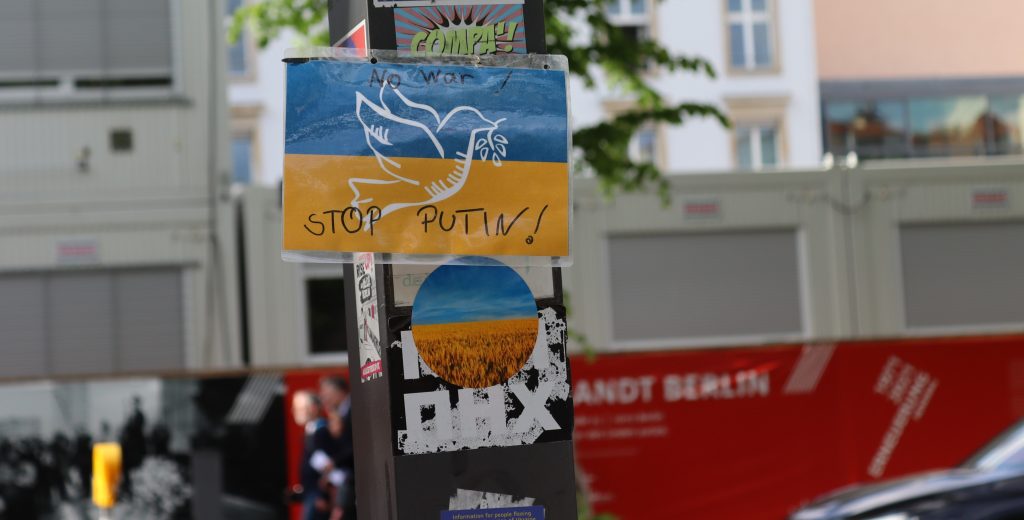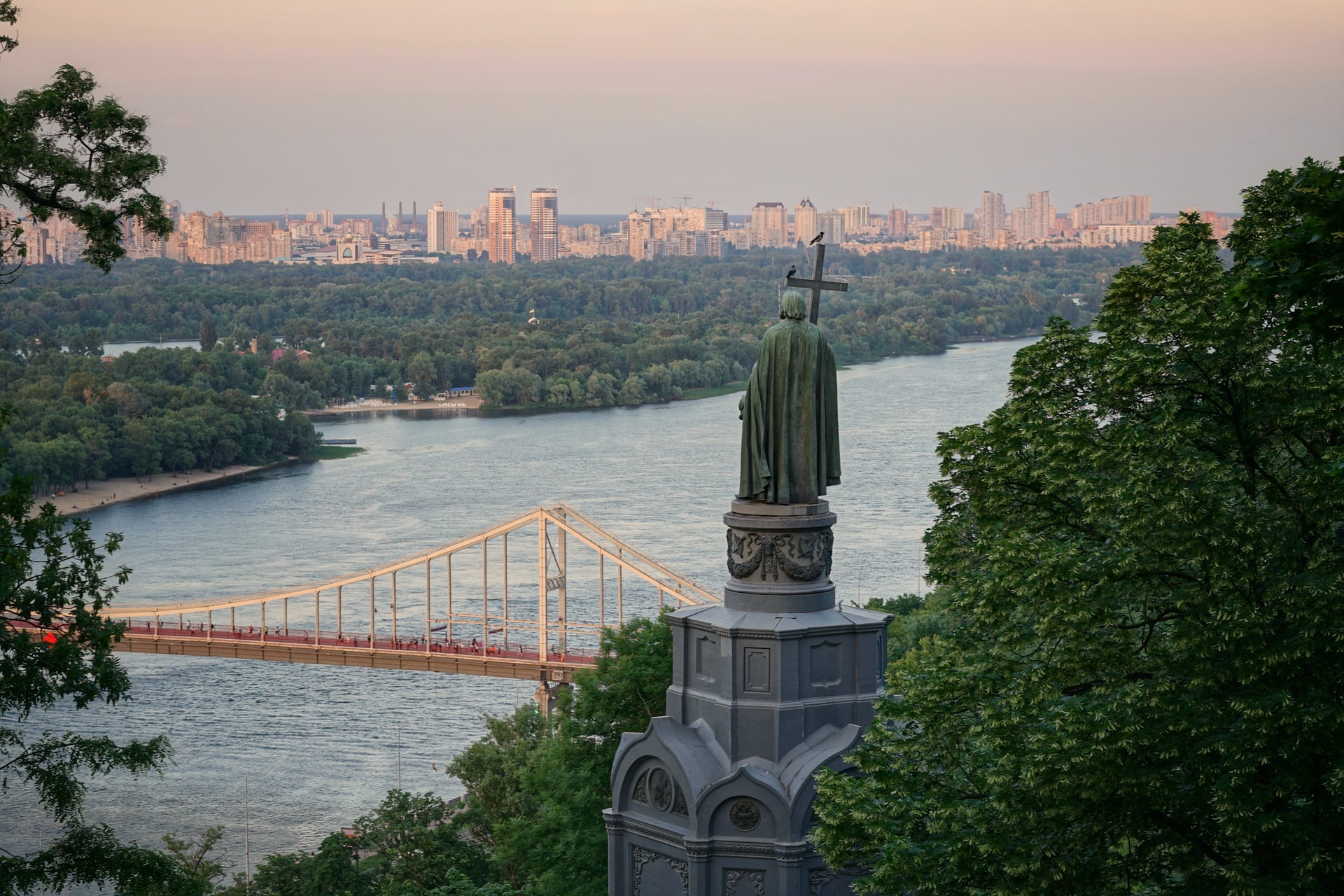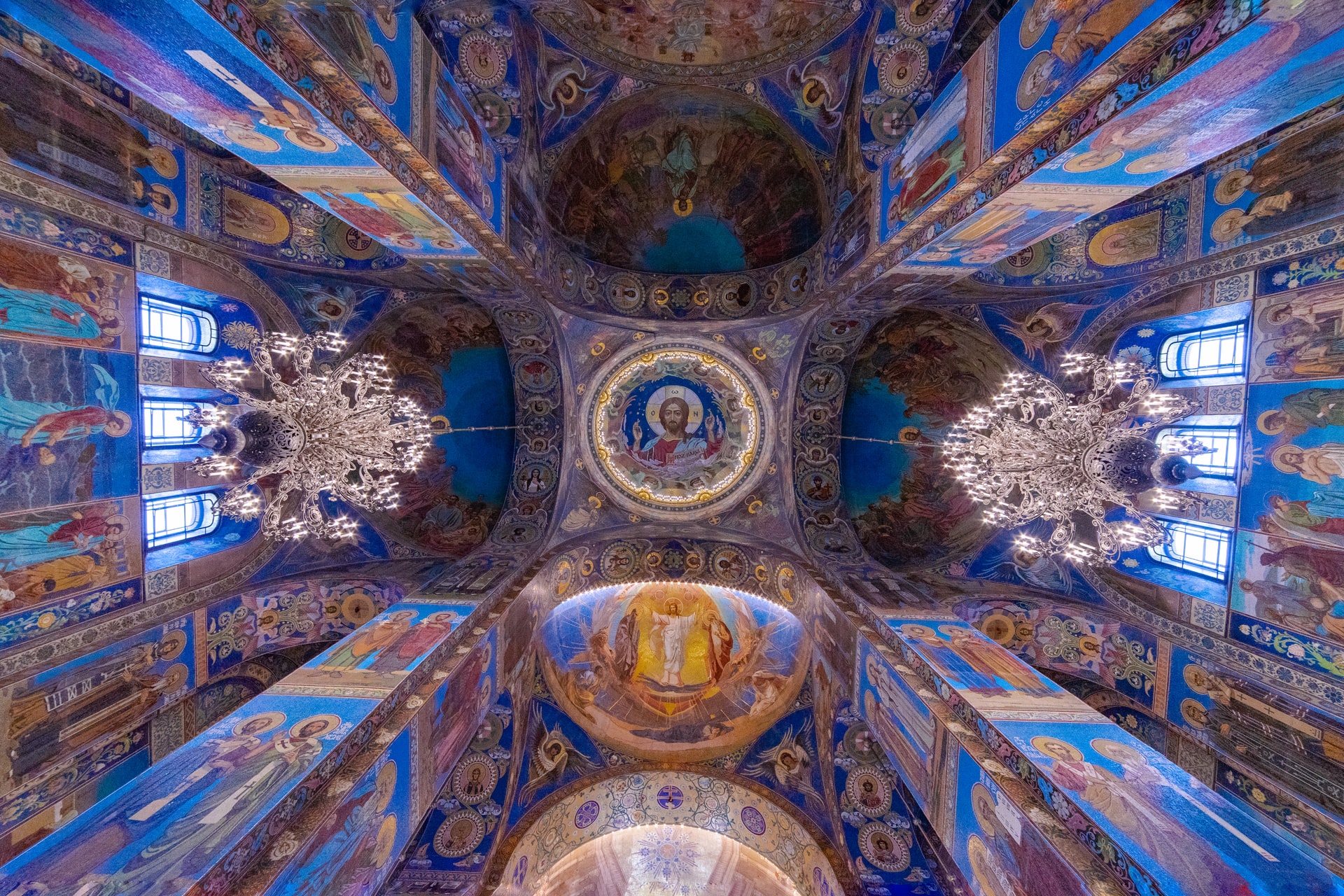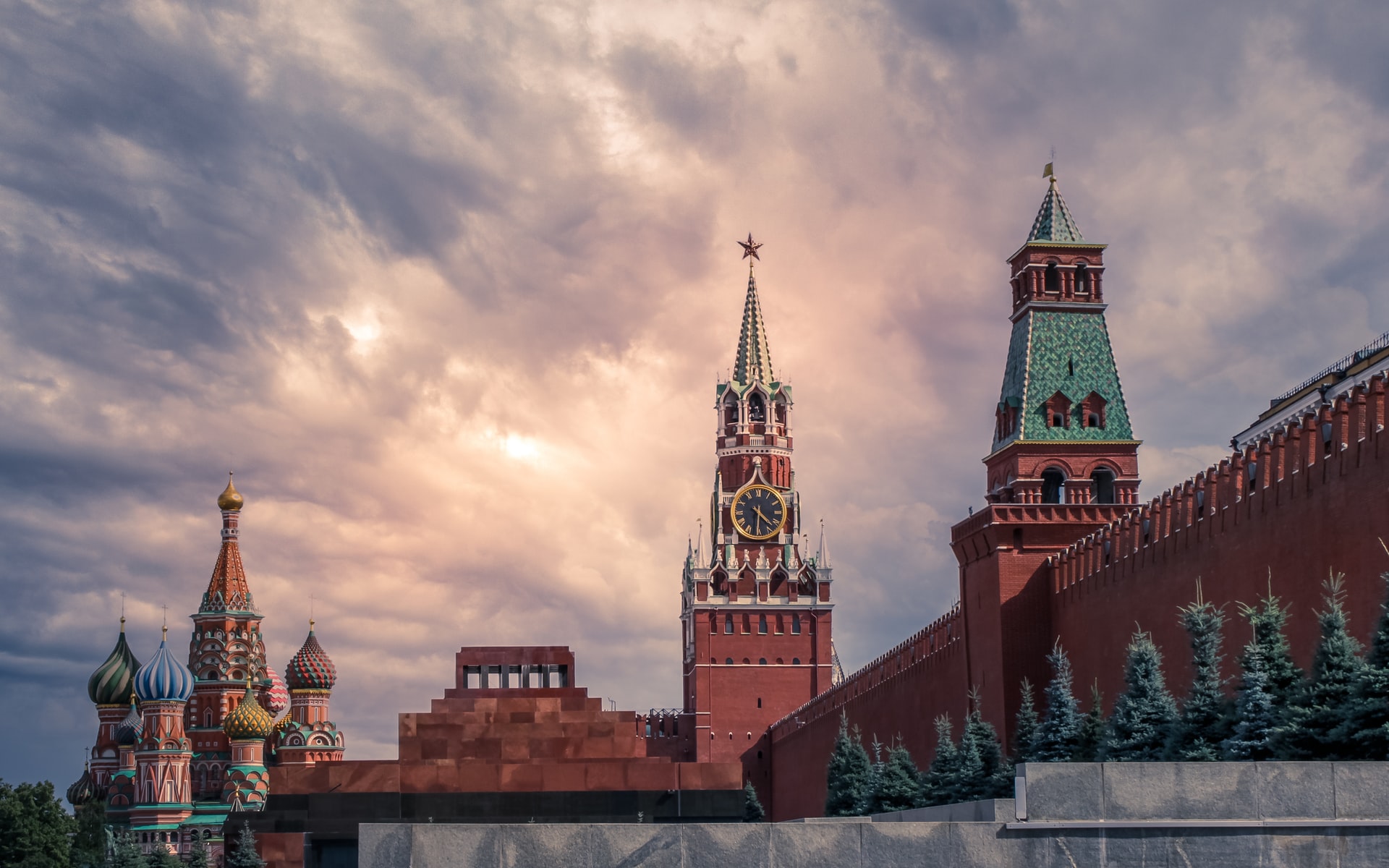Initially welcomed with open arms, Ukrainian Jews in Berlin have only begun to discover the emotional and communal deprivations of refugee life. Dr Marina Sapritsky-Nahum documented their early experiences in Germany.

“Seventy-seven years after the Holocaust, who would have ever thought we would be hiding from the Russians in Germany?” said Ora, a Ukrainian Jewish woman in her 60s from Dnipro. “What denazification can we talk about if we Jews are running away from the Russian army to Berlin of all places?”
Ora and her family were seated in the buzzing dining hall of Berlin’s Chabad synagogue, where Jewish refugees from Ukraine packed two floors for an evening meal. Three weeks after Russia invaded Ukraine and thousands of Jews, among others, fled their homes, I travelled to the German capital to see some of the families I knew from my earlier ethnographic fieldwork in Odessa. I was invited by a Chabad Lubavitcher friend, Avraham Berkowitz from New York, who has been assisting Jewish refugees in Moldova since the outbreak of the war and visiting other refugee communities in neighbouring states. Avraham had also invited a few others from Los Angeles and London who were keen to help the new influx of Ukrainian Jewish refugees in Germany. All of us were welcomed by the Chabad rabbi of Berlin, Yehuda Teichtal, as distinguished guests and potential sponsors of his refugee operation. (Names of several refugees quoted here have been changed for privacy).
Chabad of Berlin has facilitated the arrival of some 500 Ukrainian Jews, mostly from Odessa and Dnipro but also from smaller neighbouring cities like Mykolaiv. An estimated 3,500-5,000 Ukrainian Jews, the majority women and children, have escaped to Germany since the invasion began, adding to the 316,000 Ukrainian refugees already living there as of early April. Many of these refugees have come to Berlin by chance, but Germany offers permanent residence and full social benefits to anyone with a Jewish grandparent (via section 23 of the Residence Law) and approved by the Central Welfare Office of the Jews in Germany.
Many have chosen the German program over Israel’s Law of Return, a painful reality for the Jewish state, because Germany offers better social benefits, is closer to Ukraine, and acted quickly to organise transportation for evacuees. Some simply didn’t want to move to another country at war. But many are ambivalent about Berlin as a destination of Jewish evacuation. “I never wanted to move to Germany,” said Svetlana, a refugee in her 30s. “I never understood others who did. I wanted to leave Odessa, but I didn’t intend to stay in Germany. I left my husband, I left my home, I have nothing here. I can’t accept that I am in Germany and I might be here for a long time.” With tears in her eyes, she added: “I am not alive. I am torn in pieces, part here, part there. Just watching day after day go by, but I am not living.”
While many mourn the lives they left behind and feel paralysed by loss, Germany has been celebrating their arrival—and widely publicising the rescue missions in media. “Everyone wants to be a hero in this story,” a refugee in her 30s told me. Her exhausting road trip from Odessa took 60-plus hours across Moldova, Romania, Hungary, Slovakia, and Czechia, and she recalls feeling frustrated when, arriving tired and hungry at a rest stop, she and her group were asked to pose, smiling, in front of the logo of one of the companies sponsoring their escape. “We are ‘celebrities’ in Germany,” said another young woman with whom I shared a meal. We ate in the cafeteria of a hotel that a Berlin family has donated to house Jewish refugees. “During every meal, someone comes to look at us, to take pictures or to interview us for an article. Often, we’re asked to sing ‘Shalom Aleichem’ as a welcoming anthem for guests. It’s the last thing we want to do, just as you sit down to eat and you’re worried about getting enough of the [rationed] food on your plate and feeding your children.”
Rabbi Teichtal was proud as he described how the German president, Frank-Walter Steinmeier, came to Chabad to meet the Jewish orphans from Ukraine—but some of the refugees found these encounters uncomfortable, and in some instances the constant observation of their lives as degrading. Many visitors—journalists, philanthropists, sponsors, and others—came with good intentions, and the efforts of volunteers in particular were appreciated by everyone with whom I spoke, especially their help with legal documents and organising celebrations of Shabbat, Jewish holidays, and even cultural outings in the city. But the feeling of being “on display” as refugees and as Jews also seems to evoke the imagery of Ruth Ellen Gruber’s Virtually Jewish, in which living, breathing Jews are mainly regarded in contemporary Europe as objects of historical fascination.
Many Germans regard these new Jewish arrivals as “more Jewish” than some of their predecessors. Whereas the earlier waves of Jewish refugees who arrived in Germany after the fall of the Soviet Union knew little about Judaism, having lived most if not all of their lives under communism, many Jewish refugees from modern-day Ukraine are part of an organised Jewish life, and a good number are observant. Some of the religious families I spoke with around Passover, in fact, were frustrated that they couldn’t attain the most stringent level of kosher supervision (mehadrin) for the Chabad-organised Seder. “In Berlin they are used to organising Seders for less observant congregants, so their standards differ,” I was told by a woman in her late 30s. “Ukrainian Jewry is an educated and observant community.”
The Berlin community takes care of us, but we are also treated like children who aren’t old enough to understand the complexities of life.
At the onset of the war, the vast majority of Germans responded with an overwhelming show of support for the influx of Ukrainian refugees. But as time passes, attitudes change. Families who happily provided shelter for a week or two could understandably grow tired of having strangers in dire circumstances suddenly living indefinitely in their homes. A number of refugees I spoke with also felt uneasy about staying with their German hosts for extended periods of time. No one seems to have expected the war to last as long as it has already, and now there is no end in sight. Nine weeks in, Ukrainian refugees and their German hosts [were] starting to come to terms with the probability that the short-term rescue operation has become a permanent or semi-permanent resettlement. These Ukrainians refugees, like many of their Syrian predecessors, will continue to receive generous support from German religious and other organisations. But the refrain of “ungrateful refugees,” familiar to emigrants to Germany from the 1970s and 1990s, is becoming common again.
Dima, a 50-year-old Berliner originally from Russia, says that when he came to Germany in the 1970s, his family occupied a tiny 8-square-meter room provided by the Red Cross—and they were grateful for what they had. “These people are safe and not in a war zone. What more can they ask for?” Dima wasn’t the only Soviet émigré to dismiss the newcomers’ requests and complaints as unreasonable or ungrateful. But Shlomo, a religious Jew who managed to evacuate Ukraine with his wife and children, feels that Germany’s refugee organisers regard any questions about the kibbutz-style of communal living as a personal attack or an insult. “They don’t want us to ask questions,” he said, “just to say thank you for what we have.” In a frustrated voice, he clarified: “Believe me, we are very grateful. But we want to understand why things are organised the way they are and what we are entitled to. The [Berlin] community takes care of us, but we are also treated like children who aren’t old enough to understand the complexities of life.”
Unlike the Soviet Jews who emigrated with the intention of never going back, many of the current wartime evacuees left behind family, friends, jobs, homes, and entire lives in an instant, hoping they’ll have the chance to return as soon as it’s safe. Out of every Ukrainian Jewish refugee I spoke with in Berlin, not a single one came with the intention of staying permanently. But many have become hardened to reality, aware that there’s no guarantee of going home, or that home will still be there when they’re ready to go back. The sense of limbo expresses itself in acute financial uncertainty: Having lost their livelihoods in Ukraine, many have taken advantage of the social benefits provided by Germany; yet without any idea of how long they’ll stay, they remain extremely cautious about spending any money.
The most vulnerable Jewish refugees are women who left behind husbands, fathers, brothers, grandparents, uncles, and romantic partners. Alone responsible for their children’s welfare, they are enveloped in fear for those back home. A teacher from Dnipro told me that these particular Jewish refugees are the “risk group.” “If we don’t take care of these women, they might find other communities where they’re taken care of,” he said, referring to Christian missionary groups, like Jews for Jesus and Messianic Jewish emissaries, and others who have been assisting refugees at the Ukrainian border and in nearby countries. On my first day in Berlin, I’d already met volunteers from these groups at the train station, the first point of arrival for many refugees, pushing luggage carts and distributing food to new arrivals.
Leaders of Ukrainian Jewish institutions have similar concerns about assimilation. With the majority of their congregants now scattered not only throughout Ukraine but throughout Europe and Israel, they worry about how their communities will survive. The Odessa and Dnipro Chabad communities were some of the strongest and best-known hubs of Jewish life in Ukraine. Odessa boasts a proud Jewish history as a popular, cosmopolitan port city on the coast of the Black Sea, with a prewar Jewish population of 35,000. Dnipro, a city whose Jewish population was similar in size, is home to the largest Jewish community centre in the world, which houses the headquarters of the Chabad Federation of Jewish Religious Communities. Two weeks after Ukrainian refugees arrived in Berlin, the primary issues of survival and physical safety are being slowly overtaken by other concerns, like the survival of Yiddishkeit and community life.
The Ukrainian Jews I spoke with in Berlin who harbour fears about assimilation spoke of the fracturing of everything that was painstakingly rebuilt in the 30 years after the collapse of the USSR: institutions, community structures, networks, rituals, and religious observance itself. While several among the younger generation seemed to nurse the hope of an eventual return to their home communities, the older generation was less optimistic. An elderly member of the Odessa congregation told me that Jewish life in a large part of the country has been physically destroyed by the war and the dispersion of Jews from Ukraine. “Jews from Mykolaiv, Kharkov, Kherson, and Mariupol will have nothing to return to; these smaller communities will eventually merge with the larger cities around them,” he estimated. He was also afraid that those who do eventually return will be preoccupied with rebuilding their lives in Ukraine, and won’t be able to prioritise Jewish observance. Those who don’t return, he worries, may lose their connection to Jewish life forever.
This story originally appeared in Tablet magazine, at tabletmag.com, and is reprinted with permission.





